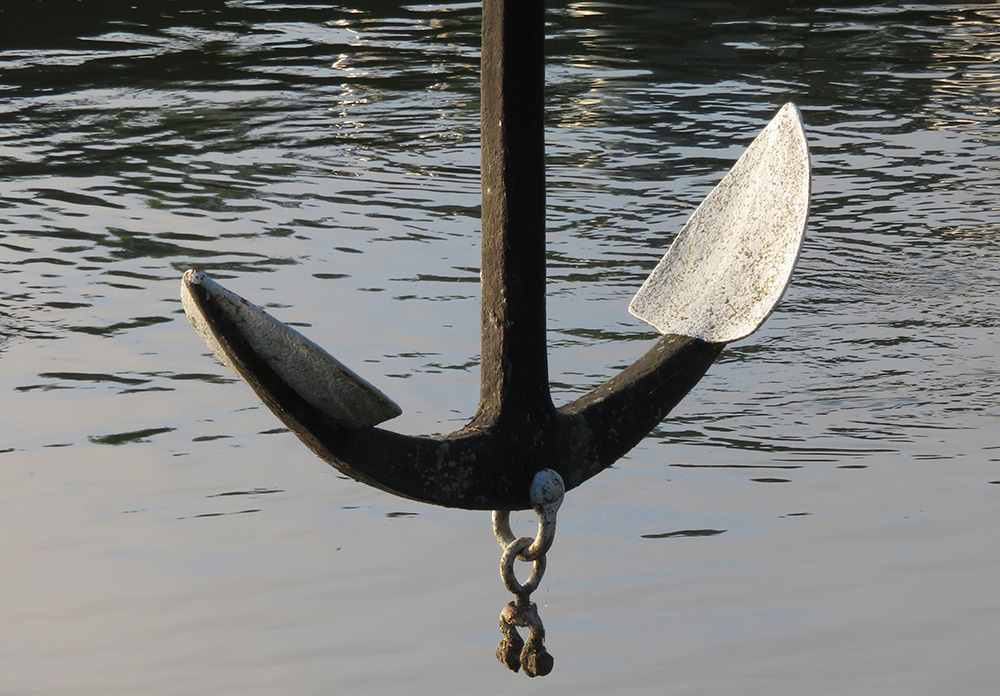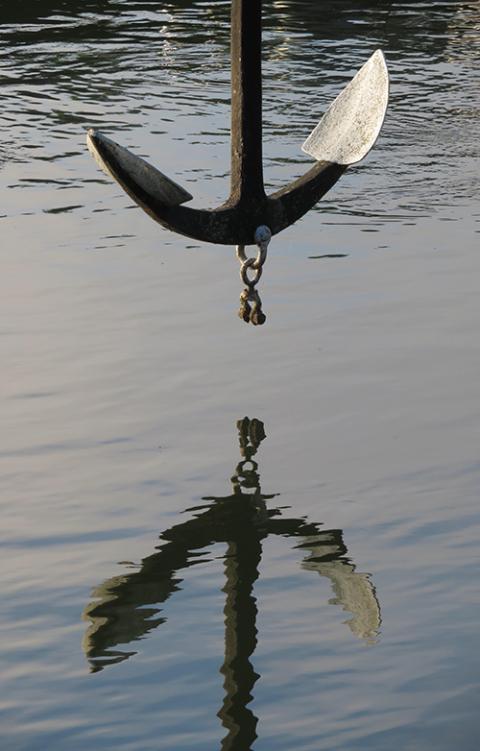
(Pixabay/Angelika Gruber)
People who lead by good example are often referred to as pillars of the community. We are often told to stand on the shoulders or follow the lead of those who came before us. There was even a song widely used for some time in communities ("Standing on the Shoulders" by Joyce Rouse, aka Earth Mama).
While I like the idea of learning from and following the examples of my predecessors, I don't care for the imagery. While pillars are sturdy and strong, they don't allow for any movement. I prefer the imagery of anchors; they allow for movement.
My father and maternal grandfather were fishermen. It wasn't their trade, but it was their passion. Neither did deep sea or "big boat" fishing, rather they fished the lakes, rivers, and streams fairly close by. Dad and Papa went out just about every Saturday for decades.
My sister and I learned to fish as well. We were always excited when the bobber would go underwater, and we knew we'd be pulling up a fish. It didn't matter that what we caught was not much bigger than the bait we were using and would be thrown back.
From fishing, I came to appreciate the value of an anchor. An anchor, when dropped over the side of a boat, keeps close but also moves with the water. The anchor let me stray a bit from the given spot but also kept me from wandering too far away.
The amount of line slack helped me determine how much I could move around and how far I could go. More line let me go further, which is great on calm and familiar waters. Less line kept me close, a necessity when the waters are rough or unfamiliar.
Advertisement
Staying with the image of anchors, mine are gradually disappearing and I'm not liking it one bit.
Both my parents are already deceased. Both died quickly and relatively young from rare and aggressive cancers. In both cases, my sister and I went from receiving diagnoses to funerals in a matter of days; mourning and processing came later.
Parents/parental figures are often the first anchors a person has. They teach by example, good or bad, and help us discern where we need to anchor ourselves and how much line slack we can handle for given situations.
Dad, for example, encouraged me to take a basic mechanics class in high school. He wanted me to know how to change a tire, check the oil, fill various fluids, and generally learn to use tools. No daughter of his was going to be 100% dependent on a male.
Mom made sure I learned to stand up for myself; she took on a major medical insurance company and won.
In 2023, my spiritual director of 25 years died. She worked up until six months before her death, one that was somewhat unexpected. We started working together when I found myself on a province committee and needed someone with an outside perspective. She had an intuition that was so accurate and in tune it was scary sometimes.

(Pixabay/Angelika Gruber)
In one of her last messages to me, she promised I would feel her presence, and I do, but it's not the same. I can't tell you the number of times I've started to send her an email to ask for her input on something. I've yet to delete her contact information from my phone.
Late this summer, my initial formation director died. She had been the vice principal of the high school I attended, so our knowing each other goes back to my early teen years. As those of us in community know, initial formation contacts are vitally important. They are our first community anchors, teaching us the ins and outs of a complex relational and ministerial group while helping discern "the fit."
Sadly, I admit we had not really kept up much the last few years, but I was present to celebrate her 75th jubilee with her.
The past two years have seen many anchors at my place of ministry retire, and even a few die. New colleagues bring energy and creativity and fresh perspective, but through no fault of their own, they don't have historical perspective that's necessary to keep long-standing institutions functioning at a high level.
I've never been a big history fan, but I do know it's important to have some of the rationale behind why things are being done the way they are. I'm finding myself nearing the very top of the list for longevity. Much to my dismay, I've become the institutional memory; in some ways I'm becoming an anchor.
Yes, I've been there awhile, and, yes, I know some of the "why do we do what we do they way we do it," but I'm in no way feeling ready (or willing?) to be one of the anchors.
It's clear to me I need to find other anchors, people who I can continue to learn from, people who will keep me from floating too far away. Maybe, in time, I will grow comfortable in being an anchor for another.




